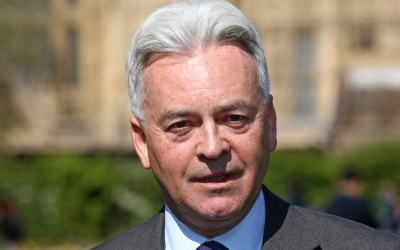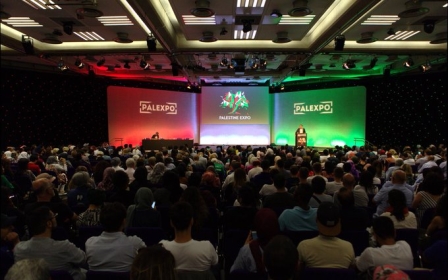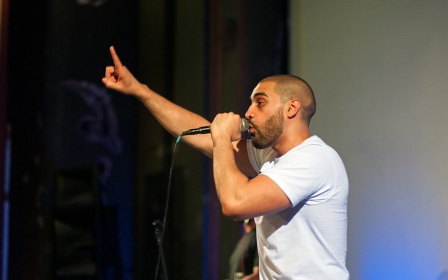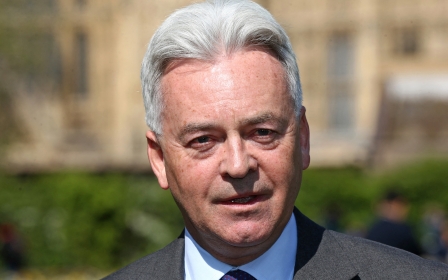Lowkey: Celebrities oppose campaign by pro-Israel group to remove rapper from Spotify
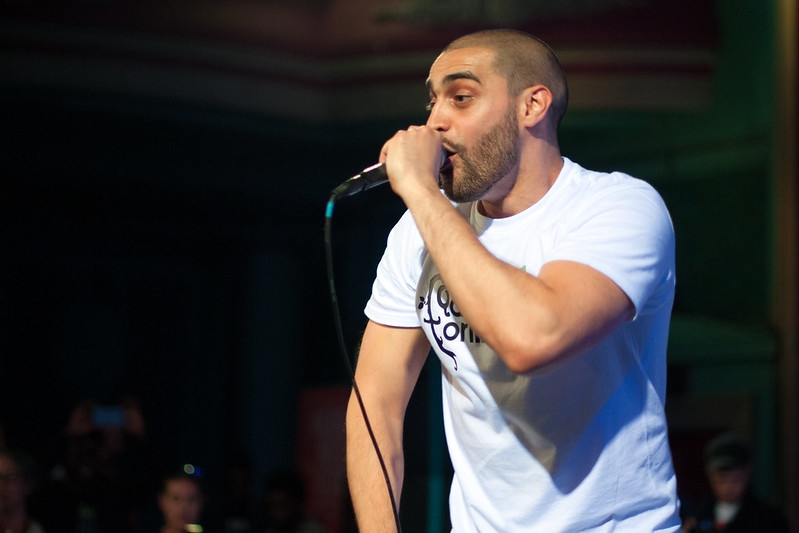
Celebrities and activists have flocked to the defence of British-Iraqi rapper Lowkey after a pro-Israel organisation called for his songs to be removed from Spotify over his campaigning for Palestinian causes.
A statement signed by Palestinian activists Mohammed el-Kurd, model Anwar Hadid and actor Mark Ruffalo, among others, called for Spotify to “not buckle to pressure groups” and remove Lowkey’s music from the streaming platform.
'The campaign against Lowkey is designed to silence Palestinians and their supporters. Anti-Palestinian censorship is now reaching into the artistic realm'
- statement
“The campaign against Lowkey is designed to silence Palestinians and their supporters. Anti-Palestinian censorship is now reaching into the artistic realm. Today Lowkey; tomorrow, who is next?" read the letter.
“Lowkey’s music has inspired and energised millions around the world and ignited an interest in many about the issues he raises in his work. As a relentless advocate for Palestinian human rights, he is a target for many who would rather his message not be heard."
The campaign against Lowkey stems from a British pro-Israel group called We Believe in Israel.
New MEE newsletter: Jerusalem Dispatch
Sign up to get the latest insights and analysis on Israel-Palestine, alongside Turkey Unpacked and other MEE newsletters
Last week, in a petition that asked people to sign up "against extreme anti-Israel content on Spotify," the group said Spotify needed to “take rigorous measures against the extremist and antisemitic content it currently hosts”.
It was Lowkey's 2010 song "Long Live Palestine - Part 2", which features Palestinian hip-hop group DAM, British Palestinian artist Shadia Mansour and Iraqi-Canadian rapper Narcy, among others, that the group flagged as an example of problematic material on the platform.
Luke Akehurst, Director of We Believe in Israel and an influential member of the Labour Party's national executive committee, told Middle East Eye: “This campaign isn’t about removing Lowkey or all his songs from Spotify. It’s about specific songs by Lowkey that contain lyrics with extreme anti-Israel rhetoric including calls to globalise the intifada. We have identified other artists with even worse material on Spotify.
"We want Spotify to uphold its own platform rules which quite clearly state that content promoting, threatening, or inciting violence is unacceptable.”
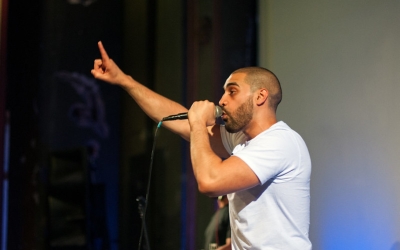
Akehurst, who is not Jewish but describes himself as a "committed Zionist", said companies like Spotify were responsible for ensuring that the material on the platform did not spread hate.
This is not the first time that Lowkey has faced pressure over his pro-Palestinian views.
Earlier this month, the Cambridge University Palestine Society was forced to postpone a talk by Lowkey following a campaign by the Cambridge University Israel Society on campus.
While the talk went on a week later despite the attempts to cancel it, Lowkey's planned appearance at a conference organised by the National Union of Students (NUS) in Liverpool was cancelled following a campaign from the Union of Jewish Students to get him removed from the panel.
Reacting to the news of the campaign against his music, Lowkey told Middle East Eye last week: “The attempt to remove my music from Spotify by a group which was birthed and cultivated by BICOM (Britain Israel Communications and Research Centre), worked with [Israel's] Ministry of Strategic Affairs and publicly identified itself as an Israel lobby group, is ultimately an own goal for the apartheid state.”
We Believe in Israel
We Believe in Israel have been active since 2011 and describes itself as advocating for "fair and balanced" representation of Israel in public discourse and providing "opportunities for Jewish and non-Jewish supporters of Israel to express their support for Israel”.
The group has been behind previous campaigns against cultural figures, including criticising Sally Rooney’s decision to refuse to use an Israeli publisher to translate her book Beautiful World, Where Are You into Hebrew.
In 2019, Electronic Intifada reported that Act.IL, the online troll army run by the Israeli government, listed We Believe in Israel as one of its partners. It is also the advocacy arm of BICOM in the UK.
Set up during the Second Intifada in 2001, BICOM has attempted to shape perceptions of Israel by providing journalists with access to senior Israeli officials and even flying reporters out to Tel Aviv.
A 2009 report by the Guardian found that the research centre’s biggest funder and founder was the Finnish-born British billionaire and art collector, Poju Zabludowicz.
Zabludowicz, it was revealed, had donated nearly $1.4m to the privately funded research group.
His fortune was created off of the success of his father Shlomo Zabludowicz's arms company, Soltam, which currently provides weapons for both the Israeli Army and the US Army.
Zabludowicz is also the CEO of the private investment group the Tamares Group, another business set up by his father, which is also connected to the Israeli army.
With a $3bn portfolio, the Tamares Group has stakes in Knafaim Holdings - the largest aviation holding group in Israel, with a long-term contract to provide military services for the Israeli Air Force.
Zabludowicz stepped down as director of BICOM in March 2019 after his tenure as director ended.
He had previously been a subject of controversy in 2014 due to BICOM and the Tamares Group's role in the art world.
Middle East Eye delivers independent and unrivalled coverage and analysis of the Middle East, North Africa and beyond. To learn more about republishing this content and the associated fees, please fill out this form. More about MEE can be found here.


